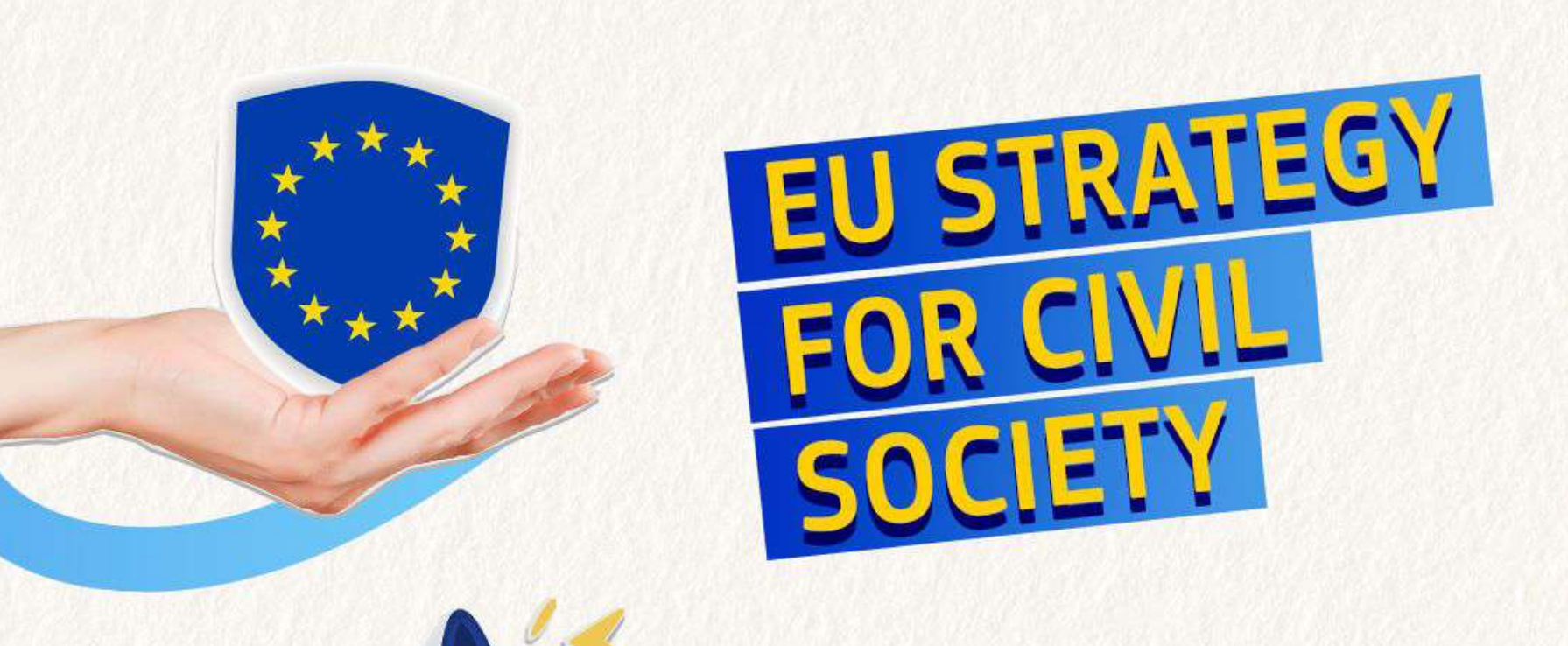New EU Civil Society Strategy brings welcome progress, yet leaves key concerns unresolved
Eurochild welcomes stronger protections, better engagement, and fairer funding for CSOs, is pleased to see many of its recommendations reflected in the final text, yet warns that children’s rights still lack a dedicated focus, and meaningful participation must be fully enforced.
Eurochild welcomes the launch of the EU Civil Society Strategy, a long-awaited initiative to strengthen the EU’s commitment to democratic values, fundamental rights and civic participation. Civil society organisations (CSOs) are essential actors in promoting and safeguarding children’s rights, supporting governments to uphold their obligations under the UN Convention on the Rights of the Child (CRC), and reinforcing democratic systems from the ground up.
Eurochild contributed to the shaping of this Strategy through the call of evidence, drawing on insights from our members, and as a member of the EESC Liaison Group.
Recognition of child rights defenders and protection of civic space
The Strategy explicitly recognises human rights defenders, including those promoting and protecting children’s rights, and commits to safeguarding them from threats and attacks. This directly responds to Eurochild’s long-standing calls to address smear campaigns, intimidation and shrinking civic space as part of the EU’s protection agenda, a key demand in our campaign against our anti-rights movement.
New mechanisms include:
- An online knowledge hub on civic-space monitoring (with the EU Fundamental Rights Agency);
- Training for justice professionals on Strategic Lawsuits Against Public Participation (SLAPPs) and the freedoms of association, expression and assembly;
- Early-warning systems for enlargement countries;
- Measures to protect CSOs from transnational repression and financial exclusion.
The Strategy also indirectly covers children’s right to peaceful assembly, under its broader commitment to freedom of association and assembly.
Meaningful, institutionalised engagement with civil society
Eurochild strongly welcomes the creation of a Civil Society Platform (2026), a concrete response to our call for structured, regular and accountable dialogue between the EU institutions and CSOs.
The Strategy’s ten guiding principles (including inclusivity, accountability, partnership, feedback loops) mirror Eurochild’s demands for meaningful engagement and transparent use of civil society input. We particularly welcome thereference to the EU Children’s Participation Platform, recognising the clear link between civic participation and children’s right to be heard.
Long-term, inclusive and accessible funding
Eurochild welcomes the Strategy’s commitment to simplifying access to EU funding, particularly for grassroots and small organisations, and promotes multi-annual and flexible mechanisms. These measures echo Eurochild’s calls for sustainable financing and simplified procedures, and are consistent with our experience in the Daphne Project, where Financial Support to Third Parties (FSTP) was used to empower smaller CSOs. Similar approaches are already implemented by other public agencies, such as those managing the Norwegian Grants.
References to civil society participation in EU funds’ monitoring committees and the principle of partnership under ESF+ align with Eurochild’s advocacy to ensure CSOs’ role in funding governance, including in the ESF+ Monitoring Committees. Early stakeholder involvement is proven to improve programme outcomes and efficiency. While the partnership principle calls for the participation of social partners and civil society, Eurochild has identified persistent challenges in EU-funded programmes, including ESF+: weak information channels, limited CSO involvement in design, monitoring and evaluation, barriers to funding access, and insufficient capacity-building support for civil society organisations.
Eurochild therefore calls for the strengthening and enforcement of the partnership principle to ensure meaningful participation of civil society organisations and children in the design, implementation, monitoring, and evaluation of EU-funded programmes. Learning from the limited stakeholder involvement in the Recovery and Resilience Facility, the new framework should introduce robust and transparent participation mechanisms from the outset.
We also welcome the Strategy’s coherence with the forthcoming Multiannual Financial Framework 2028-2034, which should maintain and expand dedicated funding streams for civil society, both throughthe proposed MFF Agora Programme and a strengthened EU Facility under the NRRPs. Sustainable, predictable, and accessible funding is essential for civil society organisations to meaningfully contribute to policy design, service provision, monitoring, and watchdog functions. This requires simplified procedures, long-term grants, and adequate support for smaller organisations, including those representing marginalized communities and children. A resilient civil society ecosystem is a precondition for effective implementation of EU priorities and democratic accountability.
Cross-border cooperation and peer learning
The Strategy highlights the importance cross-border collaboration, particularly within enlargement and external-action contexts, and encourages exchange between donors, CSOs and managing authorities . The example of the European Competence Centre for Social Innovation: Community of Practice on Social Inclusion which strategically supports collaboration with civil society organisations, should be further promoted across other EU funds. This reflects Eurochild’s recommendations on fostering peer-to-peer learning among NGOs across Europe.
Coherence with enlargement and external action
Importantly, the Strategy extends its actions to candidate countries, recognising that civic space challenges in Member States and enlargement partners form a continuum. THe introduction of institutionalised in-country consultations of CSOs directly responding to Eurochild’s concern that many enlargement partners lack regular and meaningful consultation mechanisms.
Reference to children and alignment with child rights frameworks
While the Strategy includes references to children’s rights and the EU Children’s Participation Platform, it lacks a dedicated section on CSOs working with and for children. Although the expression “child human rights defenders” was not retained, the inclusion of “CSOs and HRDs, including those promoting children’s rights” captures the essence of Eurochild’s submission. Going forward, the Strategy’s implementation should align with the EU Strategy on the Rights of the Child and reinforce its delivery at national level.
A shared vision: engagement, protection, and funding
The Strategy offers an opportunity to create a stronger enabling environment for civil society across Europe. EU networks can play a crucial role in engaging their members, ensuring that children’s rights organisations have a voice in shaping a resilient and democratic civic space. As the largest network of organisations and individuals working with and for children in Europe, reaching over 5,000 grassroots organisations, Eurochild looks forward to supporting the implementation of the Strategy and its deliverables, and to continued collaboration with the European Commission, the EESC, and other partners.
*Image: European Commission; LinkedIn post.
Further information:
- Look at our campaign on fighting anti-rights movements
- Listen to our podcast episodes on the attacks on civil society and on shrinking funds



